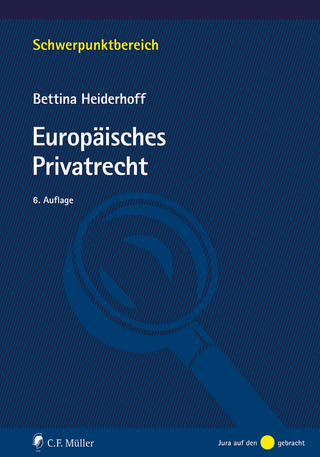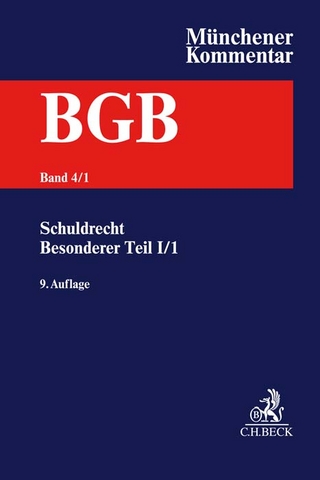
Boundaries of Information Property
Intersentia Ltd (Verlag)
978-1-83970-230-3 (ISBN)
- Titel nicht im Sortiment
- Artikel merken
This book is the result of a long-term comparative research project on intellectual property, with topics ranging from patents to copyright, examined across 16 jurisdictions. It does not aim at commenting on current policy issues. The country reports unearth the culturally, morally and historically imprinted thought patterns across Europe which underpin current discussions on the appropriation of information, and which do not change quickly. The research results question the common narratives of the distinctiveness of private and public law, of contracts and property, and of morality and the law.
The point of departure is the public good character of information, with the focus being on public interests pursued when assigning information as property. The 14 selected cases, based on recent, and in some cases futuristic when the project began in 2001, scenarios, aim to identify how boundaries to information property emerge, the areas of law that are applied and the principles that are followed in order to balance the conflicting interests at stake. The issues discussed revolve around well-known interfaces such as IP and competition law, monetary interests versus personal interests in human genome data, individual freedoms-to-operate versus collective action models as found in basic research or ‘creative commons’. The book shows how some national discussions appear similar on the surface, in terms of resorting to parallel principles, but subsequent domestic policy answers vary greatly. Even legislation which aims at harmonisation may result into more diversity. Inversely, we found legal institutions applied which install contrasting legal rules which however aim at exactly the same behavioural change.
The national reports in Part III are complemented by comparative analyses by the editors, whilst the chapters in Part II are dedicated to an analysis of the submissions from a theoretical point of view, departing from the editors’ own research interests. The chapter in Part I describes the overall ‘Common Core’ research method, which splits the national reports into operative, descriptive and metalegal formants.
Boundaries of Information Property is aimed at researchers in IP and practitioners interested in the foundational theory of their subject. It is an inspiring read for those interested in the deeper structures of regulating information.
With a foreword by Sjef van Erp (em. University of Maastricht) and contributions by Christine Godt (Carl von Ossietzky University of Oldenburg), Geertrui Van Overwalle (University of Leuven), Lucie Guibault (Dalhousie University), Deryck Beyleveld (University of Durham), Mike Adcock (University of Durham), Ramūnas Birštonas (Vilnius University), Maja Bogataj Jančič (Intellectual Property Institute, Ljubljana), Konstantinos Christodoulou (University of Athens), Teresa Franquet Sugrañes (University Rovira i Virgili), Pablo Garrido Pérez (University of Barcelona), Christophe Geiger (Luiss Guido Carli University), Silvia Gómez Trinidad (University of Barcelona), Mariona Gual Dalmau (University of Barcelona), Aleksei Kelli (University of Tartu), Tomaž Keresteš (University of Maribor), Maja Lubarda (Lawyer, Ljubljana), Thomas Margoni (University of Leuven), Jan Mates (Attorney-at-Law, Prague), Maureen O’Sullivan (NUI Galway), Andrea Pradi (University of Trento), Martina Repas (University of Maribor), Giorgio Resta (University of Rome 3), Ole-Andreas Rognstad (University of Oslo), Cristina Roy Pérez (University of Barcelona), Jens Schovsbo (University of Copenhagen), Agnes Schreiner (University of Amsterdam), Simone Schroff (Plymouth University), Tobias Schulte in den Bäumen (Hapag-Llyod, Hamburg), Simona Štrancar (University of Maribor), Tomasz Targosz (Jagiellonian University), Elżbieta Traple (Jagiellonian University), and Gabriele Venskaityte (European Commission, Brussels).
Christine Godt is Professor of International and European Economic Law and Hanse Law School Director at Carl von Ossietzky University of Oldenburg (Germany). She was a Senior Researcher at the Centre for European Law and Policy (ZERP) at the University of Bremen between 1997 and 2007. In 2005, Professor Godt completed her Habilitation at the University of Bremen (“Eigentum an Information”, Mohr Siebeck, 2007) and in 1995 received her PhD from the same University (“Haftung für Ökologische Schäden”, Dunker & Humblot, 1997). She was fellow at the Center of Excellence, University of Constance; Visiting Professor at UCLA Los Angeles. Professor Godt completed her First and Second State Exams in 1991 and 1997, respectively, in Berlin and studied Law and History in Tübingen, Berlin and Washington DC. Geertrui Van Overwalle, LLB (University of Brussels), MA (University of Leuven), PhD (University of Leuven), is Professor of Intellectual Property Law and Professor of Methodology of Legal Sciences at the University of Leuven (Belgium). She is a Visiting Professor at Tilburg University (the Netherlands), Sciences Po School of Law (Paris, France), Waseda University (Tokyo, Japan) and Monash University (Melbourne, Australia). Professor Van Overwalle is a Research Scholar at Fudan University (Shangai, China) and the author of many books and articles in peer reviewed journals (such as Nature and Science) covering Patent Law and Genetics, Patent Law and Human Rights, Theory of Patent Law, Plant Breeder’s Rights Law, Open Innovation and Commons. Lucie Guibault, LLB, LLM (Université de Montréal) and PhD (University of Amsterdam), is Professor of Law in Schulich School of Law at Dalhousie University (Canada). Professor Guibault’s research interests lie in the critical and normative analysis of the copyright system, with a focus on the impact of technological change on the balance of interests between rights owners and users. She has published extensively on copyright and related rights in the information society, open content licensing, collective rights management, limitations and exceptions in copyright, and author’s contract law. Deryck Beyleveld, BSc Hons (Rand), MA (Cantab) PhD (UEA) and FRSB, is Professor of Law and Bioethics at Durham Law School (United Kingdom). Professor Beyleveld is the author of many books and articles covering, inter alia, Criminology, the Philosophy of Law, Kantian and Gewirthian Moral Theory, Morality in Patent Law, Bioethics, Contract Law, Medical Law, Data Protection Law, Product Liability Law, and Human Rights Law.
| Erscheinungsdatum | 27.07.2023 |
|---|---|
| Reihe/Serie | Common Core of European Private Law ; 4 |
| Verlagsort | Cambridge |
| Sprache | englisch |
| Maße | 160 x 240 mm |
| Gewicht | 1300 g |
| Themenwelt | Recht / Steuern ► Allgemeines / Lexika |
| Recht / Steuern ► EU / Internationales Recht | |
| Recht / Steuern ► Privatrecht / Bürgerliches Recht ► Internationales Privatrecht | |
| ISBN-10 | 1-83970-230-3 / 1839702303 |
| ISBN-13 | 978-1-83970-230-3 / 9781839702303 |
| Zustand | Neuware |
| Haben Sie eine Frage zum Produkt? |
aus dem Bereich


